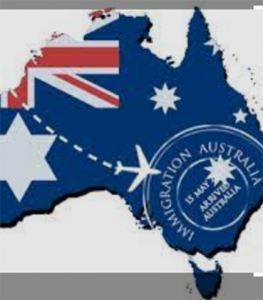Migration intake set to soar
The federal government is set to increase the size and change the mix of Australia’s migration program following data that shows the living standards of ordinary Australians will fail to keep up with much of the developed world in the wake of the COVID-19 pandemic.
One of the globe’s major ratings’ agencies Fitch Ratings has warned COVID-19 had delivered an enduring hit to Australia’s migration intake that would hinder the economy for years.
 Treasurer Josh Frydenberg has confirmed a change in immigrant numbers and composition is being considered.
Treasurer Josh Frydenberg has confirmed a change in immigrant numbers and composition is being considered.
Meanwhile, the Australian Chamber of Commerce and Industry (ACCI) has called for skilled migration to nearly double to 200,000 people a year.
Speaking at a recent ACCI event, Mr Frydenberg said the record low population growth due to closed international borders would leave the nation far behind its pre-pandemic growth projections.
“This will impact upon the economy, and including the ageing and the demographics of our population because we know that migrants tend to be of a younger age than the broader population,” Mr Frydenberg said.
“These are obviously issues that I’m thinking through and the government is thinking through, both in terms of the size and the composition of our migration program,” he said.
Ahead of COVID-19, the government reduced the migration program cap from 190,000 to 160,000 for the next four years. Prime Minister Scott Morrison had argued people in major cities were complaining about roads being clogged and trains and buses being full.
Any changes could be couched as returning immigration numbers to their pre-COVID level or targeting more skilled migrants. But Australia faces a global fight for migrants with Canada announcing plans to take 1.2 million migrants over the next three years to help it deal with labour shortages.
“The pause in migration has naturally resulted in a corresponding reduction in economic activity and slowing in population growth, which has been especially felt in areas that benefit from skilled migration,” Mr Frydenberg said.
Fitch Ratings said Australia’s growth over the past four decades had been fuelled by migration, but the shock of the pandemic meant the country would take an economic hit as immigrant numbers remained low.
The agency believes the economy will be 2 per cent – or more than $40 billion – smaller by 2026 than it otherwise would have been.
“The migration shock has been rapid and we think it will take years for pre-pandemic patterns to resume. This will have huge consequences on the economy, knocking near-term potential growth and building underlying wage and inflation pressure,” the agency said.
CEO of migrant and refugee settlement agency AMES Australia Cath Scarth Australia’s migration programs could and should take a leading role in ensuring Australia’s economic recovery from COVID-19 pandemic is sustainable and equitable.
Ms Scarth says the nation should use the hiatus created by the pandemic to reflect on how Australia’s migration and refugee programs could be improved to deliver better economic, social and humanitarian outcomes.
“We are seeing labour shortages across the nation as a result of COVID, so it is clear that migration is going to play an important role in our economic recovery,” Ms Scarth said.
“But there are things we could do to improve and focus the contributions that migrants can make. We know that early and intensive support for migrants shortly after their arrival gets them into work commensurate with their skills and qualifications much more quickly,” she said.
She said that support for skills recognition and partner visa holders could also yield economic benefits for Australia.
“We could improve the way overseas skills and experience are recognised in Australia to get migrants into jobs they are qualified and for, and for which there are shortages, more quickly,” Ms Scarth said.
“Also many migrants come with partners who are well qualified in a range of fields in their own countries. But they receive little or no government support in re-establishing their careers after arriving Australia. They are an under-utilised resource that we could exploit as a nation,” she said.
“Perhaps now is the time to really look at what we can do to better leverage the skills and experience migrants and refugee bring with them.
“While refugees come to Australia not ostensibly to contribute to our economy – but because life in their home countries is untenable and they are in need of protection – many actually come with valuable skills and experience as well as with degrees of resilience, strength and an ability to solve problem. All of these things could be of great value to Australian employers,” Ms Scarth said.












